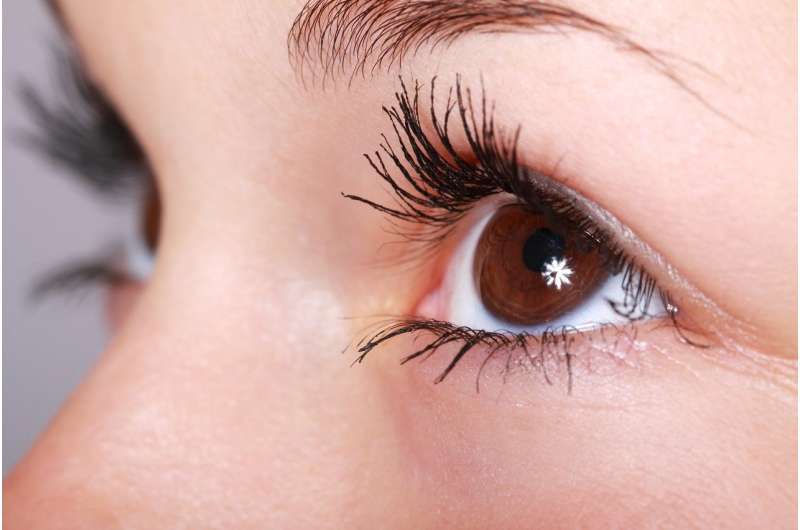Vision scientists publish findings of lipid impact in the mechanism of dry eye disease

Jianzhong Chen, Ph.D., assistant professor at the University of Alabama at Birmingham School of Optometry, along with co-author Kelly Nichols, O.D., MPH, Ph.D., FAAO, dean of the School of Optometry, has published a sensitive method facilitating dry eye disease studies in the Journal of Lipid Research. JLR is the most cited lipid journal in the world and is published by The American Society for Biochemistry and Molecular Biology.
Dry eye disease, which affects millions of individuals, occurs when the tears produced are unable to keep the eye lubricated. Tears are typically spread across the eye like film and cover the cornea, maintaining normal eye conditions. Meibum lipids, or oils, produced by the meibomian glands located within the eyelid make up the outermost layer of this tear film. These oils help prevent tears from drying up and are imperative in preventing dry eye disease; tears evaporating too quickly is a major cause of this condition.
Their research focuses on the standard lipid composition of meibum, since abnormal lipid layers would induce dry eye disease. The paper details their comprehensive and high-throughput approach for the sensitive detection of lipids in meibum, which is of particular importance considering optometry researchers often work with limited samples.
Their work will significantly assist in accurately depicting the mechanism of this widespread health condition and finding a cure.
More information: Jianzhong Chen et al. Comprehensive shotgun lipidomics of human meibomian gland secretions using MS/MSall with successive switching between acquisition polarity modes, Journal of Lipid Research (2018). DOI: 10.1194/jlr.D088138


















